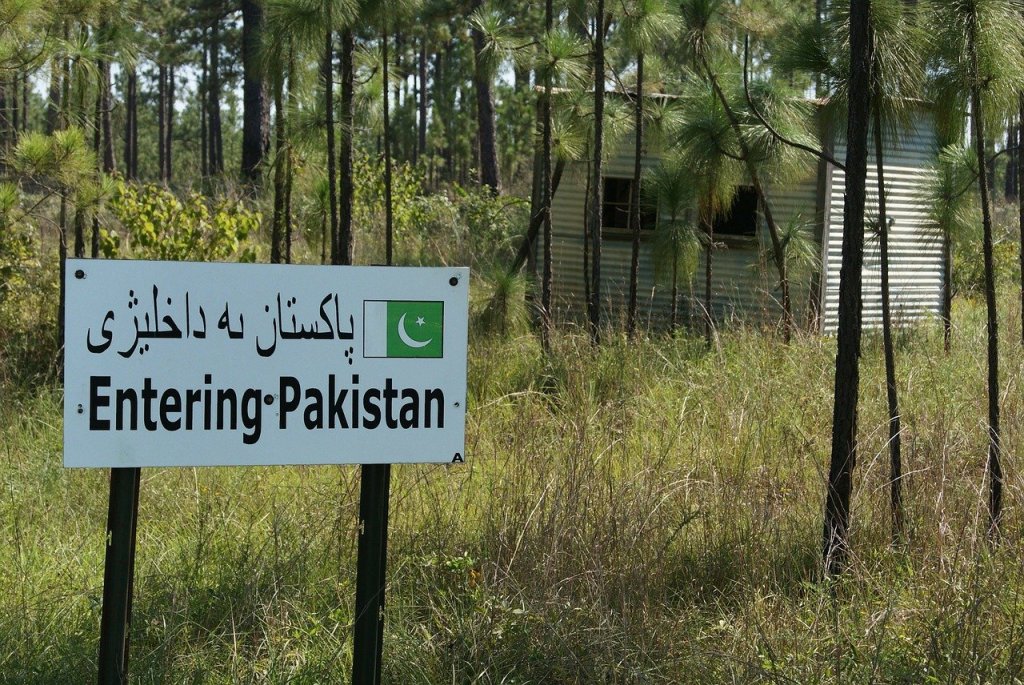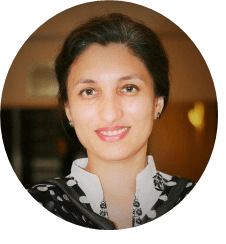
One of the gravest consequences of contemporary conflict is the mass displacement of citizens from the comfort of their homes to places unfamiliar and unknown. As they move across hostile territory, which once was their home, facing an uncertain future, the immediate and pressing priority is to reach a safe and protected place, as this movement is fraught with extreme danger and exploitation. As the intensity of conflict both inter and intra state enhances, the number of refugees, asylum seekers, and internally displaced citizens rises. At a staggering figure of 26.4 million, the willingness of states to accept refugees is declining especially with the wealthier and developed countries of Europe and North America. Labeling them as Trojan horse of terrorism, many of these countries have implemented stringent measures and laws to prevent flow of refugees and asylum seekers to their countries. Thereby inflicting double victimization on them, by firstly denying them refuge and then scapegoating them as perpetrators of instability, violence, and terror in the host country. Studies conducted to examine this casual relation between refugees and terrorism have brought forth diverging results, showing that often it’s the interest groups and radical nationalists in the host countries, that target or exploit refugee populations for their vested interests.
86% of global refugee population is hosted by the developing states, that are often riddled by their internal governance issues, and are least endowed to provide a quality refuge.. These host states most often are neighboring countries that are to certain degrees already affected by the spillover violence in the neighborhood. This creates problems related to border security, law enforcement, adjustment, settlement and documentation of inflowing refugees, provision of shelter, food availability, health care and as well as hosting of a large population group for an indefinite timeframe. This can and has resulted in socio-economic conflicts from local to larger scale between the refugee and host groups.
According to the 2021 UNHCR figures, 69% of the global refugee population comes from five countries, of which 6.8 million are from Syrian Arab Republic, and 2.7 million from Afghanistan, besides Venezuela, South Sudan and Myanmar (Burma). 38% of this population group is hosted in five countries, amongst which Türkiye is the topmost with 3.8 million, and Pakistan stands third after Colombia with 1.5 million refugee populations. Before the outbreak of the Arab spring and the Syrian war, Pakistan for the longest decades shared the top slot as a host country. the point to note is that all these top five host countries, belong to the developing world. According to the UNHCR 2015 annual report, more than 5.9 million refugees under UNHCR’s mandate (42%) resided in countries where the GDP per capita was below USD 5,000. The “Developing regions hosted 86 per cent of the world’s refugees – at 12.4 million persons, the highest value in more than two decades. The Least Developed Countries provided asylum to 3.6 million refugees or 25 per cent of the global total.”
Pakistan & Refugee Challenge
As mentioned, Pakistan is amongst the top few countries to have hosted the largest number of migrant and refugee population for the last several decades. Amongst those seeking refuge were citizens from India, Myanmar (Burma), Iran, Sri Lanka, African countries, with Afghan refugees comprising the largest number. The point to note is that Pakistan is neither a party to the 1951 Refugee Convention, nor its follow-up 1967 protocol, additionally despite an overwhelming influx of refugees, it has not developed a national policy to the effect. Yet as of the 1970s, it has hosted the largest number of Afghan citizens seeking refuge due to troubled political and security dynamics in their country. The first wave starting with April 1978 Saur Revolution in Afghanistan, followed a year later by Soviet invasion which resulted in the largest influx of Afghan refugees over the next one decade. After the Soviet withdrawal, Pakistan was left alone to look after this refugee population. With the Signing of the Geneva Accords, that formally terminated the conflict, international donors halted any financial assistance to Pakistan for the refugees, with UNHCR providing limited input. The world and the international audience were now focused on the newly emerging conflict zones. Attempts to repatriate and incentivize Afghans to return to their country proved modest, as the country remained in a perpetual state of conflict and instability. Additionally with a porous border, mechanisms to ensure repatriation remained fluid.
In the entire South Asian region, apart from Afghanistan which signed the initial convention, none of the regional states have signed refugee protocols. However, due to Islamabad’s commitment to customary international law, it abides by many of the principles enshrined in the 1951 Refugee Convention. Due to its devotion to and demonstrated interest in seeking a solution to refugee problem, Pakistan became member of UNHCR’s Executive Committee (ExCom) in 1958. And since then it has been actively engaged in establishing norms such as the need to fully protect refugees arriving in a host country as a part of a large-scale influx, problems related to mass influx of refugees and their right to seek asylum, refugee registration, as well as protection of refugees within the territories of host countries. Furthermore, in August 2000 Pakistan also publicly acknowledged its international legal obligations to refugees when it agreed with UNHCR to screen Afghan refugees according to standards generally based on international refugee law.
As of January 2022, UNHCR stated that approximately three million Afghans live in Pakistan, of which an estimated 775 000 are undocumented. However, according to Pakistani Ministry of States and Frontiers Regions (SAFRON) the number of undocumented Afghans is estimated to be between 300 000 and 400 000. With the August 2021 Taliban takeover, a fresh round of refugees entered Pakistan, despite latter’s effort to curtail an inflow, which under humanitarian grounds was impossible. As the number peaked to 117547 refugees earlier in the year, Islamabad has been forced to take measures to ensure their accommodation and well-being, further adding to its governance woes. However, despite successive governments’ efforts over the past several years to document refugee population, there is lack of availability of ‘authentic data’, with several seeking fake Pakistani citizenship documents through corrupt means.
Conclusion
For a country like Pakistan, the refugee problem is more of socio-political, and governance related, than security in the purely traditional sense. Although, during the 1980s, the refugee camps became an incubator for militant and jihadi training, with a mass recruitment of Afghan youth who later became prominent Taliban and TTP leadership is a unique aspect to the Pakistan-Afghanistan refugee profile, the worst impact over the decades has been of socio-economic nature, with Pakistan’s micro-economic profile in select areas with higher refugee concentration, becoming adversely impacted. The absence of a defined policy, Pakistan’s handling of the refugee issue has been ad hoc, and unfavorable both for itself as well as the refugee population. Its overzealous attitude towards the refugees in the 1980s, had a spread of Afghan nationals all over the country, which made data gathering and registration problematic. Lastly, as Afghanistan remains instable, hosting a growing refugee population alone remains extremely difficult for Islamabad. Targeted by religio-political interest groups, and with very limited economic growth options, the refugees appear more of a liability than an asset, which needs to be addressed, and this has also adversely affected Pakistan’s relations with Afghanistan. Even though in terms of humanitarian assistance and accommodation, Pakistan has always tried to cushion and accommodate the rising number, providing health, education, food and civic assistance given its limited capacity. It is unfair to expect more, in terms of moral and humanitarian efforts, when it is already burdened by pressing governance indicators, internal strife, hosting decades old and largest refugee population and now saddled by economic challenges.
Where protecting refugees is a major political decision undertaken by individual state actors, it is a collective responsibility to respond effectively to such challenges, as global flash points increase in time. As legal framework and institutional arrangements improve, humane efforts and empathy needs to be adopted by all, collectively rather than by a select few countries.

Dr. Salma Malik, Quaid-I-Azam University
Dr. Salma Malik is an Assistant Professor at the Department of Defence and Strategic Studies, Quaid-I-Azam University, Islamabad, Pakistan. She specializes in the areas of Conflict and Security Studies, and South Asian Affairs. She is an alumnus of Uppsala University, Sweden, Asia Pacific Center for Strategic Studies APCSS, Hawaii and Visiting Research Fellow, Sandia National Labs, USA. She is member Board of Governors, Institute of Regional Studies, Islamabad, Member Senate, Air War College Institute, Karachi, and member core group on Gender, Peace & Security, National Security Division. She has served at the Institute of Strategic Studies, Islamabad, and is also on the Visiting Faculty list of leading civil and military academies and institutions, as well as universities. Her publications include an edited volume, “Pakistan’s Security Problems and Challenges in the Next Decade,” (October 2015). And “Small Arms and the Security Debate in South Asia,” (2005) besides articles in research journals, book chapters and monthly columns.
To cite this work : Salma Malik “ Pakistan & Refugee Issue”, Panorama, Online , 01 August 2022, https://www.uikpanorama.com/blog/2022/08/01/pak/
Copyright@UIKPanorama. All on-line and print rights reserved. Opinions expressed in works published by the Panorama belongs to the authors alone unless otherwise stated, and do not imply endorsement by the IRCT, Global Academy, or the Editors/Editorial Board of Panorama.


